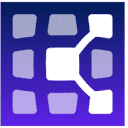
BrowserStack
Founded Year
2011Stage
Series B | AliveTotal Raised
$250MValuation
$0000Last Raised
$200M | 3 yrs agoRevenue
$0000Mosaic Score The Mosaic Score is an algorithm that measures the overall financial health and market potential of private companies.
+6 points in the past 30 days
About BrowserStack
BrowserStack is a software testing platform that specializes in web and mobile application testing across various browsers and real devices. The company offers a suite of services including manual and automated testing, visual review tools, and compliance testing for accessibility standards. BrowserStack serves a broad range of customers, from individual developers to large enterprises, providing tools to improve software quality and streamline the testing process. It was founded in 2011 and is based in Dublin, Ireland.
Loading...
BrowserStack's Product Videos


ESPs containing BrowserStack
The ESP matrix leverages data and analyst insight to identify and rank leading companies in a given technology landscape.
The test automation market provides solutions for businesses to automate their testing processes, allowing for faster and more efficient software development. It involves the creation and execution of automated test scripts, which simulate user interactions and verify the functionality, performance, and reliability of software applications. Test automation helps streamline the testing process, red…
BrowserStack named as Highflier among 15 other companies, including Intel, OpenText, and Tricentis.
BrowserStack's Products & Differentiators
Automate
BrowserStack Automate is a test automation platform, enabling UI testing of modern web applications on 3000+ combinations of browsers, real iOS, and Android devices. Powering continuous testing in delivery pipelines, Automate helps Agile and DevOps organizations deploy production-ready code at speed. Automate makes it easy to run and scale cross-platform testing without bottlenecks, flakiness, or setup hassles. Dev and QA teams are able to maximize coverage while accelerating test execution by 30x. Automate paves the way for teams to Shift-Left and release frequently with confidence. With out-of-the-box support for frameworks like Selenium, Cypress, Nightwatch.js, Playwright, and Puppeteer, Automate integrates seamlessly with existing test setups.
Loading...
Expert Collections containing BrowserStack
Expert Collections are analyst-curated lists that highlight the companies you need to know in the most important technology spaces.
BrowserStack is included in 1 Expert Collection, including Unicorns- Billion Dollar Startups.
Unicorns- Billion Dollar Startups
1,244 items
BrowserStack Patents
BrowserStack has filed 22 patents.
The 3 most popular patent topics include:
- network protocols
- software testing
- mobile operating systems

Application Date | Grant Date | Title | Related Topics | Status |
|---|---|---|---|---|
5/12/2023 | 9/3/2024 | Software design patterns, GPS navigation devices, Java virtual machine, Java platform, Nokia platforms | Grant |
Application Date | 5/12/2023 |
|---|---|
Grant Date | 9/3/2024 |
Title | |
Related Topics | Software design patterns, GPS navigation devices, Java virtual machine, Java platform, Nokia platforms |
Status | Grant |
Latest BrowserStack News
Sep 19, 2024
WebDriver BiDi offers the best of both worlds in browser automation tools Anyone testing web applications ought to be aware of a new browser automation protocol called WebDriver BiDi . This new protocol is an evolution of the original WebDriver standard and it incorporates some of the benefits of various other automation tools, most notably, adding bidirectional communication. “It’s a brand new protocol, and it’s taking all the best ideas that have been out there for a while and trying to standardize it through the W3C,” said David Burns , head of open source at BrowserStack (a browser testing company who is on the WebDriver BiDi working group) and chair of the Browser Testing and Tools Working Group at W3C, which is the group responsible for the WebDriver and WebDriver BiDi specifications. The original WebDriver protocol, or WebDriver Classic, is a “remote control interface that enables introspection and control of user agents,” according to its W3C definition. Essentially, it provides a way to remotely control the behavior of web browsers so that applications can be tested in them. However, this protocol only offers one-way communication, meaning that the client sends a request to the server, and the server can reply only to that one request, explained Puja Jagani, team lead at BrowserStack and a key code committer for the WebDriver BiDi project. “The server cannot initiate communication with the client but can only respond. So if something of interest happens in the browsers it cannot communicate back to the client unless the client asks for it,” explained Jagani. The BiDi in WebDriver BiDi stands for bidirectional communication, meaning that it actually allows events in the browser to stream back to the controlling software. According to Jagani, because browsers are event-driven, it’s helpful for the browser to be able to share events back to the client when something interesting happens. For instance, with this new protocol, users can subscribe to the events created when a network request is sent to or from the browser, which enables them to monitor (or modify) all outgoing requests and incoming responses. An example of this in action involves an application that is pointing to a production database in the cloud. When testing that application, WebDriver BiDi could be used to modify outgoing requests to point to a test database so that the production database isn’t flooded with test data. “This is only possible with bidirectional communication. It is not possible without the W3C BiDi protocol,” said Jagani. CDP vs WebDriver The Chrome DevTools Protocol (CDP) and WebDriver Classic have historically been often compared because they are both low-level tools — tools that execute remote commands outside of the browser, such as opening multiple tabs or simulating device mode, Jecelyn Yeen, senior developer relations engineer for Chrome, and Maksim Sadym, software engineer at Google, explained in a blog post . High-level tools, by contrast, are those that execute commands within the browser. Examples of these include Puppeteer, Cypress, and TestCafe. CDP does enable bidirectional communication, but it’s limited for testing purposes because it only works for Chromium-based browsers, like Google Chrome, and wouldn’t work in Firefox or Safari. According to Yeen and Sadym, “WebDriver BiDi aims to combine the best aspects of WebDriver ‘Classic’ and CDP.” However, BrowserStack’s Burns emphasized that this new protocol isn’t intended to replace CDP, but rather it’s a new testing and automation protocol entirely. “CDP is always going to be there on Chromium browsers,” he said. It already has browser support CDP’s creator, Google, is heavily involved in developing and supporting WebDriver BiDi, as is Mozilla. “We are glad that Mozilla and Google have come and helped us get it to that point where it’s standardized and now everyone can benefit from it,” Burns said. He added that Apple isn’t quite there yet, and it’s not clear at the moment when support for WebDriver BiDi will be available in WebKit-based browsers. “Sometimes standards can move at a glacial pace, and part of that is for good reason. It involves creating the collaboration points and getting consensus — and sometimes consensus can be really hard, especially where Google, Mozilla, and Apple, they have their own ideas of what makes something better, and so getting that can be really, really slow to implement,” Burns explained. Testing automation tools and testing companies have also started supporting it In addition to the browsers needing to support it, another piece of the puzzle is getting the testing automation tools and testing providers on board. Fortunately, the automation tools Selenium and WebDriverIO, as well as the testing companies BrowserStack , SauceLabs, and LambdaTest, are all part of the WebDriver BiDi Working Group. WebdriverIO and Selenium already have some support for the new protocol, and BrowserStack supports it too. Selenium itself is also updating its entire implementation from WebDriver to WebDriver BiDi. Burns explained that retrofitting the classic version of WebDriver to BiDi is the last major piece of the process, and is expected to be complete within the next year. “It’s a volunteer-driven project, so this happens when everyone’s bandwidth and time matches, so it gets done in like spurts or chugs of work, right? But I think that’s how it is for open source development in general,” said Jagani, who is also a member of the Selenium Technical Leadership Committee. She noted that by Selenium 5 (the current version is 4.24), the goal is to have at least the high-level APIs done, which cover a number of use cases, like giving the user the ability to listen to console logs and the ability to do basic authentication for their website, to name a couple. Once Selenium 5 is out, the next goal will be to start transitioning commands one by one from WebDriver Classic to WebDriver BiDi. “Hopefully, by Selenium 6, we are BiDi only,” she said. She did go on to explain that it’s a long process with many external variables. Browsers are still in the process of implementing it, and once BiDi is in the stable version of the browser, that’s when Selenium comes in and can start implementing it. After that, there’s still a period where users will need to use it and give feedback so that Selenium can ensure its implementation is resilient. Jagani said that the user experience should remain the same once Selenium is switched over to BiDi, and there won’t be a big breaking change. “That’s what Selenium tries to do — even from Selenium 3 to 4 — we try to make sure it’s a seamless integration with minimal breaking changes,” she said. “Selenium is very big on backwards compatibility as much as possible, or at least ensuring that we’re deprecating things as required so you know we are going to be removing it and giving sufficient warnings. That experience for users using WebDriver Classic would remain the same, because eventually it’ll be the same APIs, just using BiDi under the hood.” To take advantage of the new advanced capabilities that BiDi brings, there will be newer APIs available, which will be similar to the ones users are already familiar with. Article Tags
BrowserStack Frequently Asked Questions (FAQ)
When was BrowserStack founded?
BrowserStack was founded in 2011.
Where is BrowserStack's headquarters?
BrowserStack's headquarters is located at 8th Floor, Block E, Dublin.
What is BrowserStack's latest funding round?
BrowserStack's latest funding round is Series B.
How much did BrowserStack raise?
BrowserStack raised a total of $250M.
Who are the investors of BrowserStack?
Investors of BrowserStack include Accel, Insight Partners and Bond.
Who are BrowserStack's competitors?
Competitors of BrowserStack include HeadSpin, SmartBear, LambdaTest, AuMBER, IAccessible and 7 more.
What products does BrowserStack offer?
BrowserStack's products include Automate and 4 more.
Loading...
Compare BrowserStack to Competitors

Sauce Labs provides continuous test and error reporting solutions. The company offers continuous testing cloud identifies quality signals in development and identifies the source of errors in production on every browser, operating system, and more. It primarily serves the Internet software and service sector. The company was founded in 2008 and is based in San Francisco, California.

LambdaTest is an AI-powered testing cloud platform that specializes in cross browser and mobile app testing. The company offers a range of testing solutions including manual and automated cross browser testing, Selenium script execution on a cloud-based infrastructure, and live-interactive app testing on Android and iOS devices. LambdaTest provides AI-powered visual regression testing and test intelligence insights, along with a unified test manager for enterprise clients. It was founded in 2017 and is based in San Francisco, California.

Kobiton provides mobile device testing solution. The company offers a platform for testing mobile applications on real devices, providing services such as real-device testing, visual testing, mobile performance testing, and mobile accessibility testing. It was founded in 2016 and is based in Atlanta, Georgia.

HeadSpin operates a data science-driven platform. It helps businesses identify and fix issues through data science and real-world testing to improve application performance and enhance user engagement. It enables manual and automated application testing with screen and screenless devices, such as mobile phones, desktop browsers, media players, audio devices, and even automotive devices. The company was founded in 2015 and is based in Sunnyvale, California.

Functionize is a company that focuses on providing an intelligent testing platform in the software industry. The company's main services include offering a cloud-based platform that uses artificial intelligence and machine learning technologies to automate the software testing process, enabling end-to-end tests, visual testing, API testing, and functional testing. The company primarily sells to the software development and quality assurance sectors of the economy. It was founded in 2014 and is based in San Francisco, California.

Tricentis specializes in continuous testing and quality engineering, focusing on automated software testing tools. The company offers a range of products including test automation, test management, performance testing, mobile testing, and data & change intelligence solutions. Tricentis primarily serves sectors that require robust software testing solutions, such as financial services, healthcare, telecom, and retail. It was founded in 2007 and is based in Austin, Texas.
Loading...